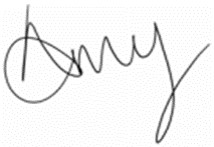Odd, isn’t it. As an HR professional, you know full well what a good CV looks like—yet when it comes to writing your own, you struggle. You’re not alone in this; CV writing is tough, and finding that winning balance between highlighting your achievements, your potential, and your personality in the space of one or two pages is not an easy thing to do!
Sometimes, all we need is a bit of a reminder on how to structure and compose a CV which hits all the right notes.
1. Lead with an attention-grabbing headline.
Make sure you summarise both your status and your objective at the start of the CV. For example, ‘I’m a highly experienced generalist with a strong background in employee relations for a government department, looking to take the next step in my HR career as an HR Manager’. This allows the reader to understand at a glance both where you are professionally, and which role you seek. It must be short and to the point, but there’s also room here to impress. Optionally, you may also want to include a short sentence about what kind of person you are, such as driven, passionate about HR, or solutions-focussed.
2. Highlight your skills in a breakout section.
If you’re highly experienced, you may wish to follow this headline/summary section with a small section of bullet-points highlighting your strongest HR skills, such as talent acquisition, change management, or workforce planning.
3. Show how good you are.
In the body of your CV, use strong action words that highlight your achievements in impressive, measurable ways. ‘I’m an excellent organiser and problem-solver’ simply doesn’t pack the same punch as ‘I identified issues with the team’s workflow, presented alternatives to my manager, co-ordinated the change and delivered a 10% increase in productivity. Try to use words such as these ones below, and tie them to actual outcomes where you can.
- Achieved
- Completed
- Co-ordinated
- Delivered
- Identified
- Presented
- Promoted
- Reported
- Organised
- Led
4. Use keywords strategically, but don’t be a slave to them.
We’re all aware that busy recruiters and hiring managers are scanning to check that we’ve referenced the competencies they’ve mentioned in the job spec. If they’re missing, the CV will be discarded, so we often feel pressure to cram every single keyword in there.
This is where some of us go wrong, as we get so caught up in adding in competencies so that the CV reads woodenly (basically as a carbon copy of the job spec) with no personality or attention-grabbing quality in it whatsoever. It’s still got to be about you, remember?
So, use HR-specific keywords and weave them into your CV in authentic ways that reflect when you’ve demonstrated that competency.
5. Always remember where you’re going
As Stephen Covey writes in 7 Habits of Highly Successful People, ‘Begin with the end in mind.’ If you did a lot of union negotiation in your last job but don’t want that to feature in your next role, then don’t highlight it as a major skill you’re using to impress your next employer. It can be hard to minimise the importance of impressive experience like this, but unless you want to be tasked with that responsibility again, what’s the point in drawing attention to it? List it in a bullet-point among your other achievements, certainly, but don’t put it in your headline or at the top of your list of skills.
6. Include information about your past employers.
You can’t expect the HR manager or recruiter to know about the details of your past employers, so include a short description of the company, such as industry and number of employees. However, do be aware of how the company size or structure might influence the hiring’s perspective on the job you’re going for now: for example, if you’ve only ever worked for small companies and now you’re applying for a multinational, be selective about what information to include.
7. Include qualifications and relevant outside interests.
Degree or professional qualifications will of course add to the power of your CV; remember sometimes less is more. If you don’t have a lot of qualifications, don’t try and bolster them up with relatively inconsequential achievements.
This section is also where you might include relevant club memberships, such as if you’re part of a young professionals or a woman in business group. It’s up to your personal preference whether you want to include hobbies and interests here.
You might want to take your cue from the job spec. Do they mention a fun culture or a close-knit team? They obviously care about their culture and will want to find people to fit with it, so hobbies are good in this case.
8. White space and formatting.
Don’t include blocky chunks of text that go on and on. Remember CVs are often read on smart phones or iPad’s. Break up all your text and sections with white space to make your CV easy on the eye and attractive to read.
Run your CV through spellcheck, and then hand recheck for grammar and typo’s. Even the best of us can miss the odd pesky typo. You really don’t want to be cast out of the running because of a silly error.
As an HR, professional, you’ve got the advantage. You already know what makes a great employee. You know what the employer is looking for by looking at their job spec. You know how hiring managers will look at your CV. And you know your own wealth of experience. In truth, you’ve got all the information you need.
Good luck!
